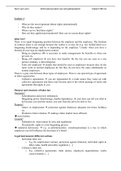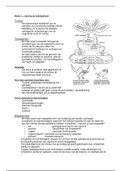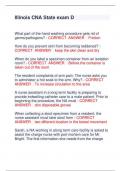College aantekeningen
Lectures international labor law and globalization
This document contains notes from all the lectures of the course international labor law and globalization. Guest lectures and video lectures are also included as well as relevant models and examples from practice.
[Meer zien]













